
+


To report an absence due to illness, call 020 7258 1169 or email reception (available on the Halcyon App) before 0830.
Medical and other appointments should be made before or after school wherever possible and communicated as soon as they are booked.
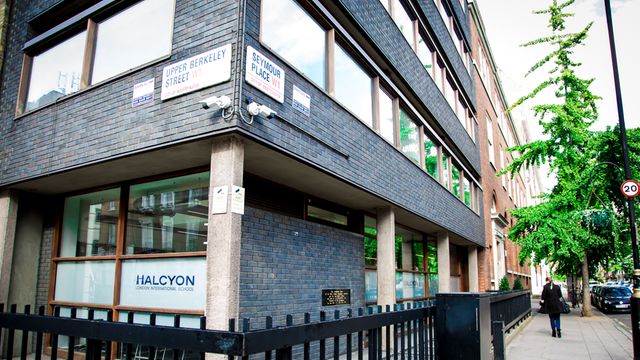
It is Halcyon’s expectation that students will attend school every day unless they are ill, are required to attend essential appointments or due to exceptional circumstances that have been approved in writing in advance by the Director. Please make a careful note of the major dates, as published on the school website, and ensure that school vacation times are respected.
We request that parents prioritise making all medical appointments or family holidays outside of school hours so as to minimise class disruption and ensure that students’ class experiences and learning are not compromised.
View Term Dates
View Attendance Policy document

Students should arrive at school after 0845 to be in their first-period class by 0900. We ask that all families ensure their child(ren) arrive on time at school. Punctuality is vital in ensuring the smooth running of the school and late arrivals impact negatively on all students’ learning.
Students arriving after 0845 have access to general classrooms, but not laboratories. In case of late arrival, students must report to the receptionist before joining their first-period class. If a student will be late, a parent should please contact Reception: reception@halcyonschool.com

Students are not allowed to bring food into the school building.
Halcyon provides a vegetarian lunch programme, and snacks are provided at break-time. Food and drinks other than water should only be consumed in the school canteen. Students who choose to go off-campus may pre-order and collect an off-campus lunch.

With parental permission, students in the IB Diploma Programme may leave the campus at lunch and are not required to be in school when they do not have a class. They must always sign in and out of the building. Students in Grades 7 to 10 will have one designated off-campus lunchtime per week.
Students may not bring food back into school.

Any found items should be handed in to the school office where a central lost property store will be maintained. Students and parents are welcome to check for lost property at any time, but parents will be invited to view the items periodically and at the end of each Term unclaimed items will be given to a charity. We recommend, wherever possible, the labelling of items to make for easier identification.

At Halcyon, we encourage students to bring their smart phones to school and on field trips, both to improve communication and to be used as learning devices. Students and staff will work together to use them responsibly and respectfully, at the appropriate time, throughout the day. Our staff will also guide and foster responsible digital citizenship.

The Student Wellbeing programme aims to develop the following:
– Student Advocacy: Developing skills in participation, accountability, political literacy, open-mindedness and tolerance. Students advocate for themselves and each other, developing a secure, attentive environment that allows each individual to develop their own unique potential.
– Cognitive Coaching & Mentoring: Finding time to give and receive attention, to develop listening skills, to reflect and consolidate experience and to build meaning and purpose from our experiences. The primacy of dialogue helps us all to engage, develop self-mediation and make responsible choices. At Halcyon, every student has a teacher-mentor who will advocate for them at all times.
– Student Leadership: Providing opportunities to develop decision-making, communication skills and the negotiation of ideas, offering real autonomy and control in key areas of school life. This supports a sense of community and ensures that everyone has a voice in their social group.
Advocacy, coaching and leadership enable student agency and so allow community values to be explored and re-negotiated. These values include a sense of justice, altruism, courage, resilience, and happiness.
View Wellbeing Policy document

Halcyon offers every student a one-to-one mentoring program, which provides every student with a teacher-advocate to support them in everything they do. Each student will be a part of a mentor group, which will meet for two one-hour sessions each week. During this time students will either:
1. have a one-to-one cognitive coaching session, to set, and reflect on, individual goals
2. log their coaching conversation
3. develop mentor group assemblies
4. plan and reflect on service as action (MYP) or creativity, action and service (DP)
5. pursue personal learning
Mentoring groups at Halcyon are vertical, consisting of students from each grade level. The purpose of the vertical grouping is to build a community across age groups and to provide opportunities for student mentoring.
Mentors are members of the Halcyon Wellbeing Team, and play a key role in ensuring the wellbeing and academic progress of the students in their group. Parents should contact mentors in the first instance if they have any concerns or questions about their child. Mentors will:
– Monitor and advise on organisation and study skills
– Monitor homework and deadlines for their mentees through regular review of the assessment calendars in Managebac
– In addition to mentoring conversations, mentors will meet with students individually at regular intervals to review their portfolio and results on ManageBac
– Work with subject teachers, the IBMYP Coordinator and IBDP Coordinator to make action plans for academic support and extension
– Work with Service as Action and Creativity, Activity and Service coordinators
– Monitor students’ social and emotional wellbeing, provide counsel and advice and coordinate with the Student Wellbeing Team
– Communicate with parents when appropriate

Each student’s mentor is the first point of contact for any student issues relating to academic or student wellbeing. In addition, the school also has access to an experienced student counsellor who is present on campus each Tuesday and Friday, and a University Guidance and Careers Director.

Standards of behaviour at Halcyon London International School are expected to be consistently high. Students should be self-motivated, self-disciplined, courteous and respectful at all times and must demonstrate care for the school and its surroundings. In order to achieve these expectations, with a cohort of international students originating from many different countries and cultures, Halcyon promotes and reinforces positive behaviour at all times.
The school believes that the Guiding Principles (our framework for how we wish to conduct ourselves) encourage students to focus on a positive approach to behaviour and discipline. This is supported by our restorative approach to the management of conflict or the re-negotiation of expectations.
View Behaviour Policy document
View Wellbeing Policy document

Each subject in the IBMYP has a set of criteria against which student work is assessed. Achievement against the criteria is communicated in semester reports along with a summative grade on a scale of 1 (lowest) to 7 (highest) based on overall achievement in all the criteria.
IBDP subjects use grade descriptors to assess student progress. Students receive semester reports with a single summative grade, on a scale of 1 (lowest) to 7 (highest), based on their overall achievement in a range of different assessment tasks.
View Curriculum and Assessment Policy Document.

A variety of assignments or “assessment tasks” are completed by students in the IBMYP and IBDP. These range from essays and research projects to presentations and debates. By their nature, these tasks are longer term and open-ended. Teachers will guide students in the time management of these tasks and much of the work will be completed in school. However, it can happen that some students feel under pressure to work longer when several tasks culminate in the same period, at the end of a term, for example. Good communication between home and school is essential to support these students and ensure a healthy balance between schoolwork and other interests.

Halcyon offers the IB Middle Years Programme (MYP) for students in Grades 6 to 10 (UK Years 7 to 11) and the IB Diploma Programme (DP) for Grades 11 and 12 (UK Sixth Form/Years 12 and 13). Halcyon is an IB World School, subject to rigorous and regular compulsory programme evaluations for both MYP and DP. The curriculum meets all the requirements of the IB Standards and Practices.
Halcyon is committed to ensuring that the curriculum on offer is broad and balanced, in order that the needs of all students are provided for, whatever their gifts and talents. We make provision for academic achievement and spiritual, social, moral, cultural, physical and creative development of our students allowing them to become lifelong learners. Students are encouraged to look outwards, valuing diversity in people and the natural world. All students follow the IB Diploma Programme from Grade 11 (UK Year 12) and this leads to the award of the IB Diploma, or individual course qualifications, and the Halcyon High School Diploma at the end of Grade 12 (UK Year 13). Dependent on subject choice, students have the possibility of the award of a bilingual IB Diploma. Diploma Programme students may take one of their six main subjects as an online course.
View Curriculum and Assessment Policy Document.

Students take tests at the end of IBMYP units in many subjects. These tests are assessed against one or more of the IBMYP criteria and contribute, like other assessment tasks, to the semester grade. Grade 11 and 12 students can expect regular testing, and internal school examinations sessions to develop the required test-taking skills. Most subjects in the IBDP conclude with IB external examinations at the end of Grade 12.
Results of IB Diploma internal examinations – Grade 11 end-of-year examinations and Grade 12 mock or trial examinations – will be recorded in Managebac but form only a component of the semester grade.
At the end of the academic year, Grade 10 students will have school-based end of year examinations.
Each year all MYP students complete International Schools Assessment (ISA) standardised tests in English, mathematics and science. The results of these tests are used to help teachers plan individualised learning for students. They do not contribute to student semester grades and results are reported separately to parents.
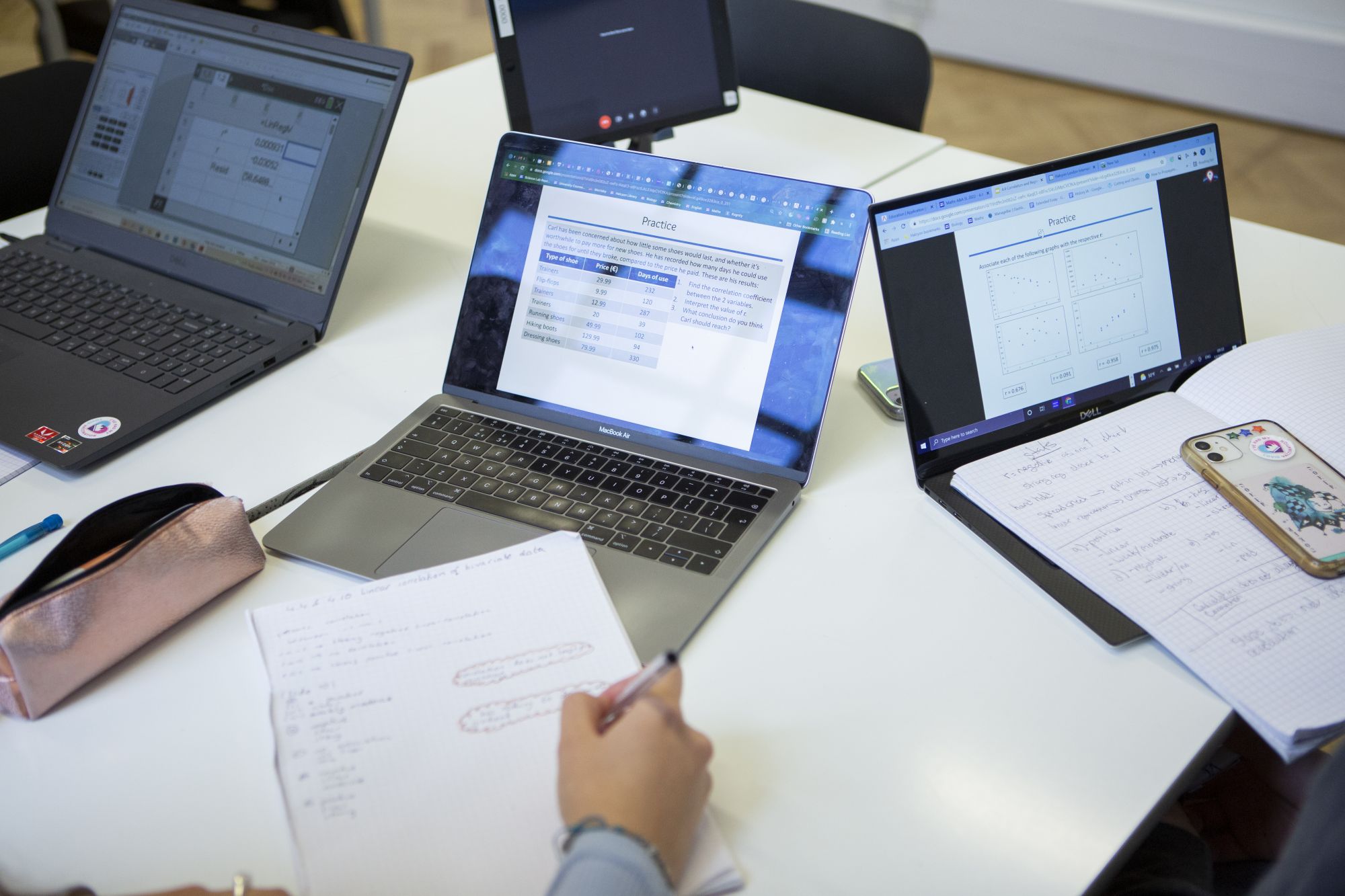
Homework is assigned to give students experience with organising themselves for independent learning and to reinforce and extend the learning that takes place in school.
Guidelines for the amount of homework in each grade level are given below. However, it is recognised that individual students work at different paces. Students are encouraged to explore the learning resources in their online course materials and enjoy independent reading if they finish homework quickly. Conversely, if a student struggles to complete homework in the suggested time, they should speak to their teacher and mentor so that the workload can be adjusted.
Suggested homework time on school nights:
*Remember, this is divided across all subjects*
– Grade 6: 30 – 45 minutes *This is approximately 20 min per week per subject*
– Grade 7: 45 – 60 minutes *This is approximately 25 min per week per subject*
– Grade 8: 45 – 60 minutes *This is approximately 25 min per week per subject*
– Grade 9: 60 – 75 minutes *This is approximately 30 min per week per subject*
– Grade 10: 60 – 90 minutes *This does not account for ILT work. Each subject can assign up to 1 hour of homework per week*
– Grade 11/12: 10-15 hours/week
*This is 2 hours max for SL courses that meet for 3hrs – and 1 hour max for SL classes that meet for 4hrs.
*This is 3 hours max for HL courses per week*
Homework will be assigned sufficiently in advance to allow student to plan for after school activities and family and community commitments.
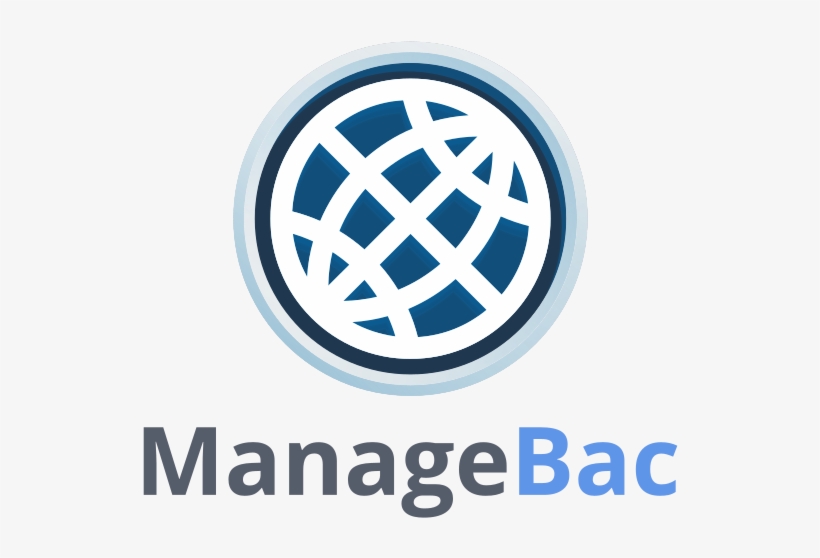
ManageBac is an online curriculum and assessment database devised especially for IB students. Here, students and parents can view details of the curriculum in each subject and a calendar showing major assessment tasks and due dates. Students will upload their completed assessment tasks to Managebac for marking so that all their work is stored in an electronic portfolio. Once the work has been marked, students can see the annotations made by the teacher as well as the grading rubrics and the results achieved. Students will record their Service as Action (SA) or Community, Action, Service (CAS) activities and reflections here and record personal learning goals and progress towards these goals. Students and parents will receive their log-in details before/during the first week of term.
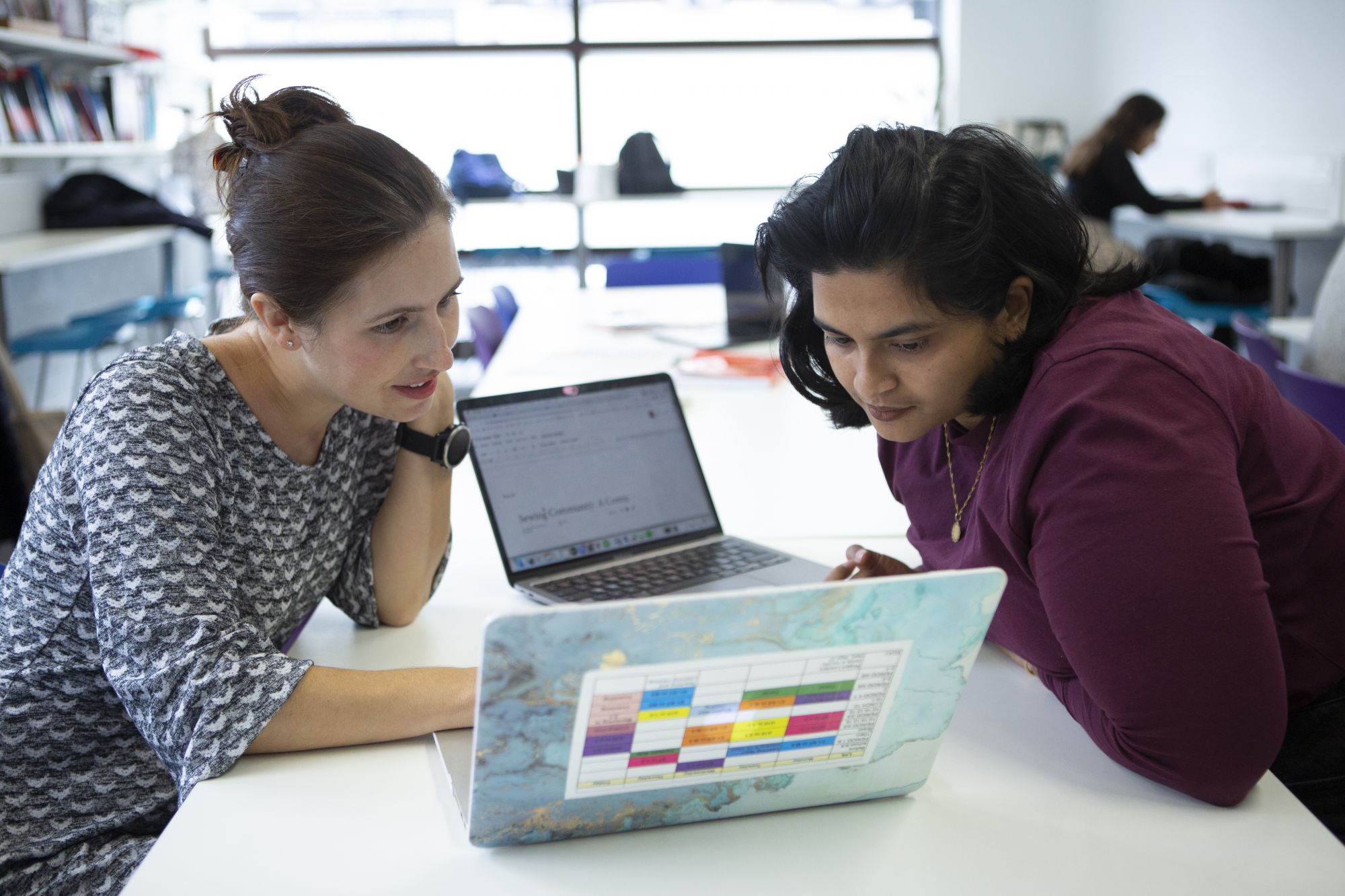
Reports are published quarterly on ManageBac. Progress reports indicating achievement levels are published in November and April before parent teacher student conferences. Semester reports with summative grades and teacher comments are published in January and June. Parents and students receive an email notification when reports are published in ManageBac.
Parent/teacher/student conferences (known at Halcyon as 3 Way Conferences) take place twice per year, November and March. These occasions are opportunities for students to share their work with their family and reflect on their progress. In addition, both parents and students are encouraged to make appointments with teachers or mentors to discuss progress in individual subjects throughout the year.
We will also showcase student learning at different times of the year, taking advantage of opportunities in the curriculum to share with the community.
Each year all MYP students complete International Schools Assessment (ISA) standardised tests in English, mathematics and science. The results of these tests are used to help teachers plan individualised learning for students. They do not contribute to student semester grades and results are reported separately to parents.
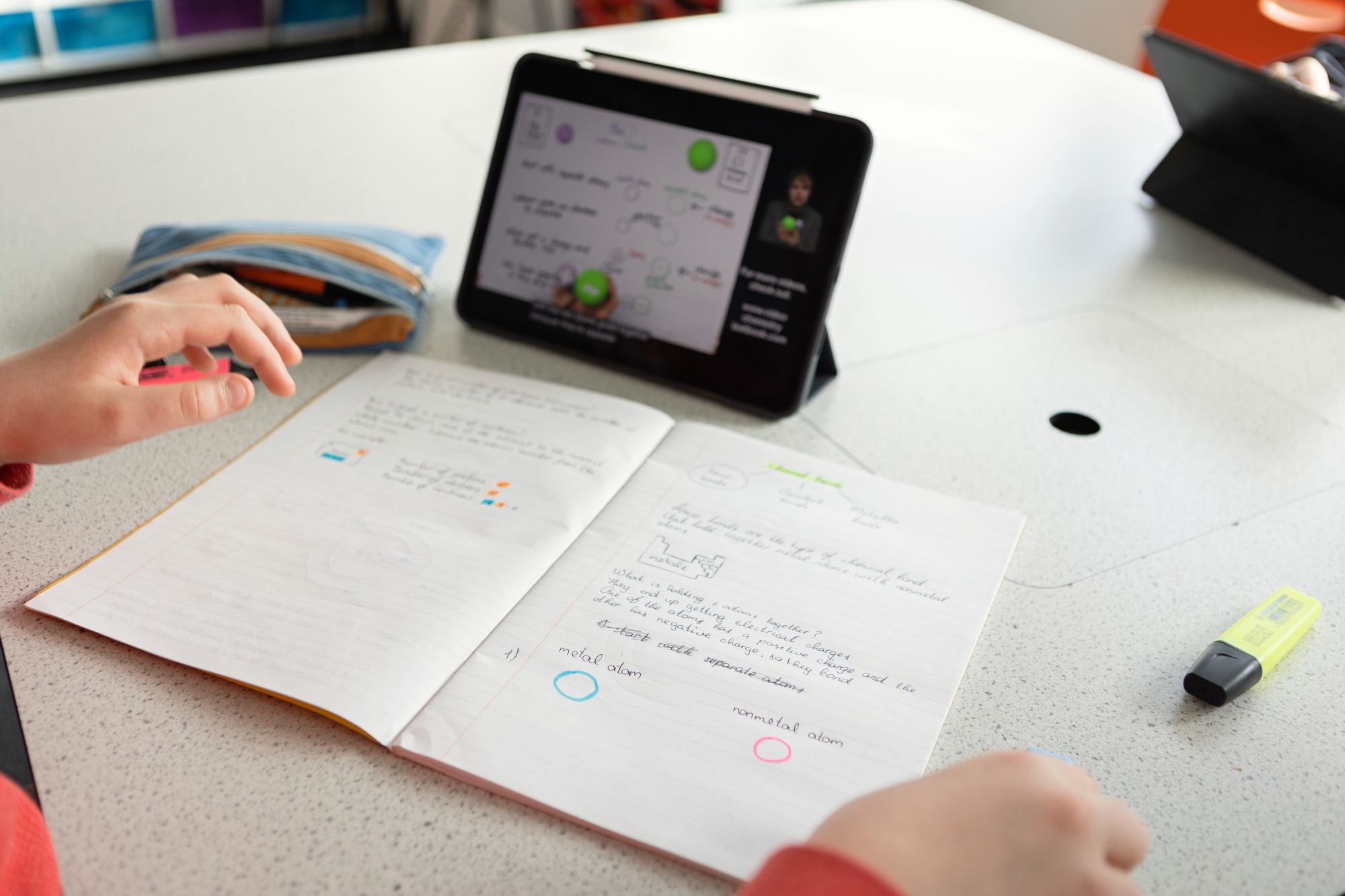
The IBMYP also has a core requirement – Service as Action – that broadens students’ educational experience by challenging them to apply their knowledge and understanding to service projects that enrich others. In addition, all students in Grade 10 must complete a personal project, an interdisciplinary study of their choice building on the skills acquired through the IBMYP.
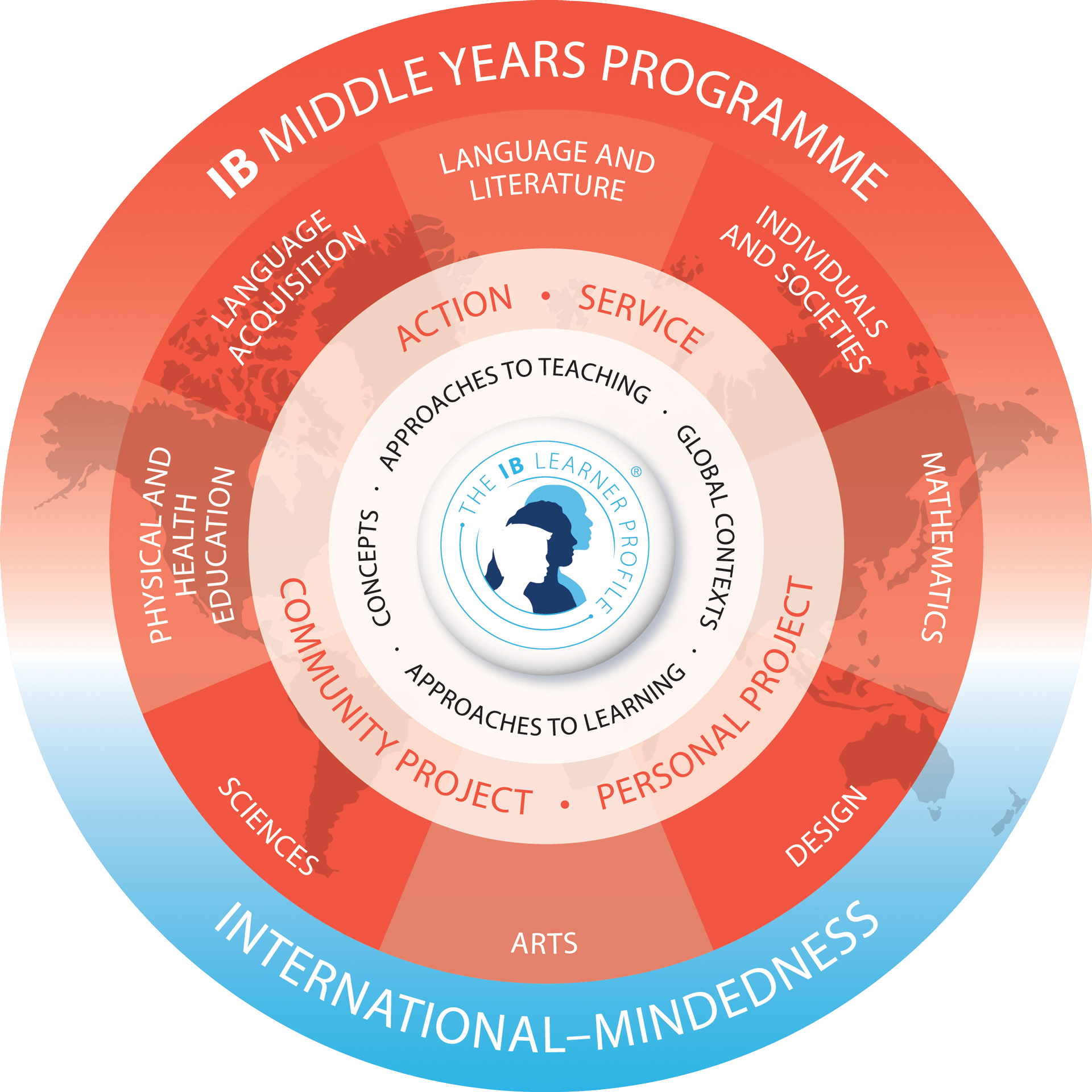
The IBMYP is distinguished by the following features:
– a student-centred approach that develops the attributes of the IB Learner profile .
– an international curriculum that fosters learning in global contexts.
– an emphasis on communication and language learning.
– an emphasis on interdisciplinary learning and connection to real-world issues and problems of concern and interest to young people.
– an emphasis on community service and action.
– rigorous, criterion-related internal assessment.
Enquiries about the Middle Years Programme to be directed to Kerry Jenkins, MYP Coordinator
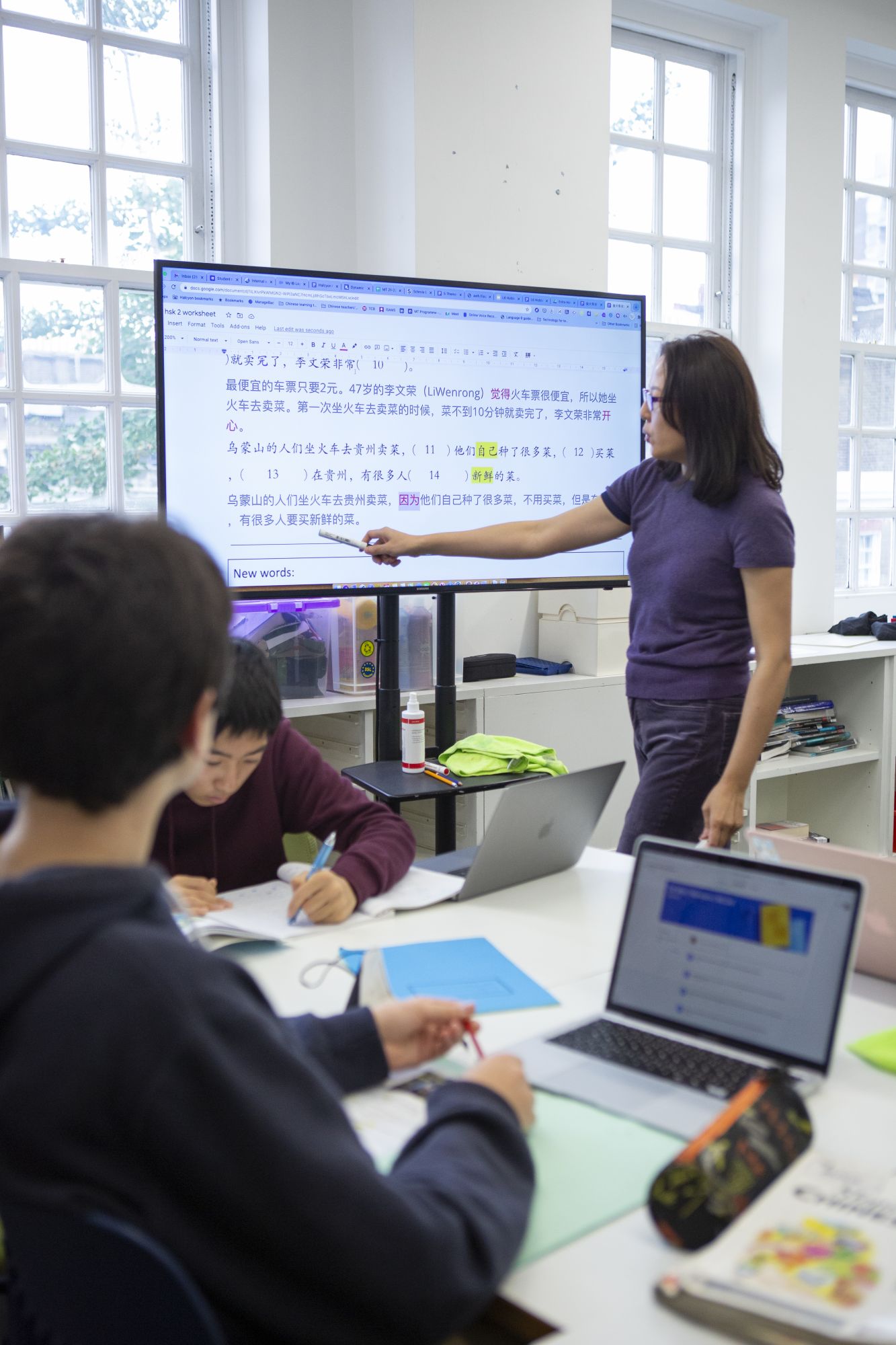
Halcyon students study the IBMYP curriculum in grades 6 to 10. The IBMYP is based around an in-depth conceptual study of eight academic disciplines:
Group 1: Language and Literature (English)
Group 2: Language acquisition: Spanish or Mandarin, as well as Mother Tongue (at an additional charge)
Group 3: Individuals and societies
Group 4: Sciences
Group 5: Mathematics
Group 6: Arts
Group 7: Physical and health education
Group 8: Design

The IB Diploma programme is intellectually demanding and comprehensive, and it requires excellent study habits and self-management skills. We intend that everyone who enters the programme will succeed and, initially, this means that certain prerequisites must be met for a student to be granted entry to the Diploma programme. These are not intended as barriers to access; they are to ensure that those who begin the two-year course have a reasonable chance of being successful.
View IBDP Entry Requirements Policy Document
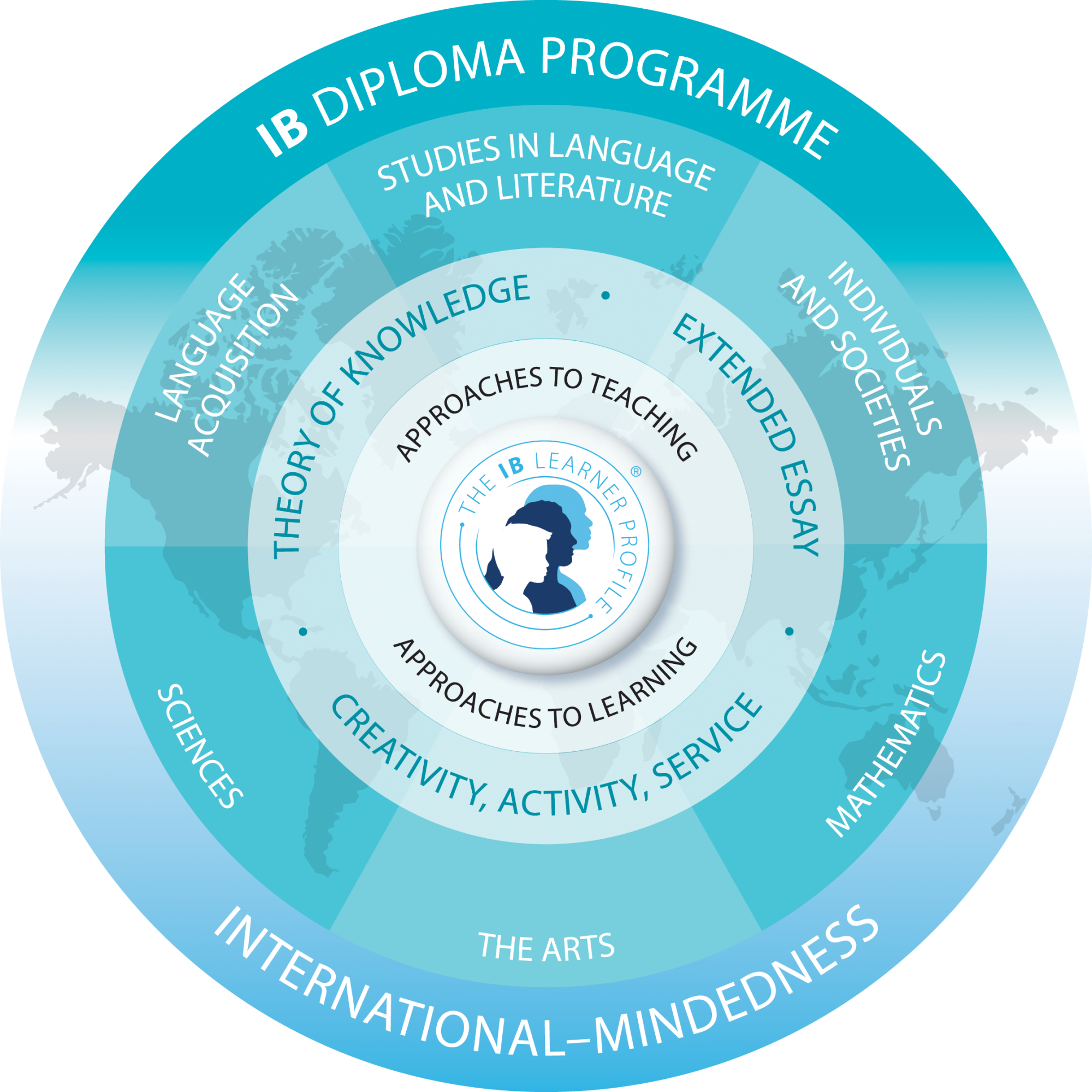
Halcyon offers the IB Diploma Programme and the IB Courses Programme to students in Grades 11 and 12. These are two-year courses.
The IB Diploma Programme (Grades 11 and 12) is designed as an academically challenging and balanced programme with final examinations that prepare students for success at university and life beyond. This two-year programme enjoys recognition and respect from the world’s leading universities.
Students study six courses, three at higher level and three at standard level, thus ensuring both breadth of experience and the ability to specialise through higher level courses. The programme consists of:
– Group 1: Studies in language and literature*
– Group 2: Language acquisition*
– Group 3: Individuals and societies
– Group 4: Sciences
– Group 5: Mathematics
– Group 6: The arts or electives (electives from Groups 2, 3 or 4).
*Students may choose to study their mother-tongue language as an alternative to subjects offered in Group 2. There is an additional cost for this mother-tongue instruction.*Students may choose to study their mother-tongue language as an alternative to subjects offered in Group 2. There is an additional cost for this mother-tongue instruction.
With the school’s approval, students may choose the opportunity to study an IB subject online through Pamoja Education, the IB’s approved online partner. This would be an alternative to IB subjects offered by the school and therefore there is an additional charge.
Students take written examinations, marked externally by IB examiners, at the end of the programme.
Enquiries about the Diploma Programme to be directed to Lori Fritz, IBDP Coordinator
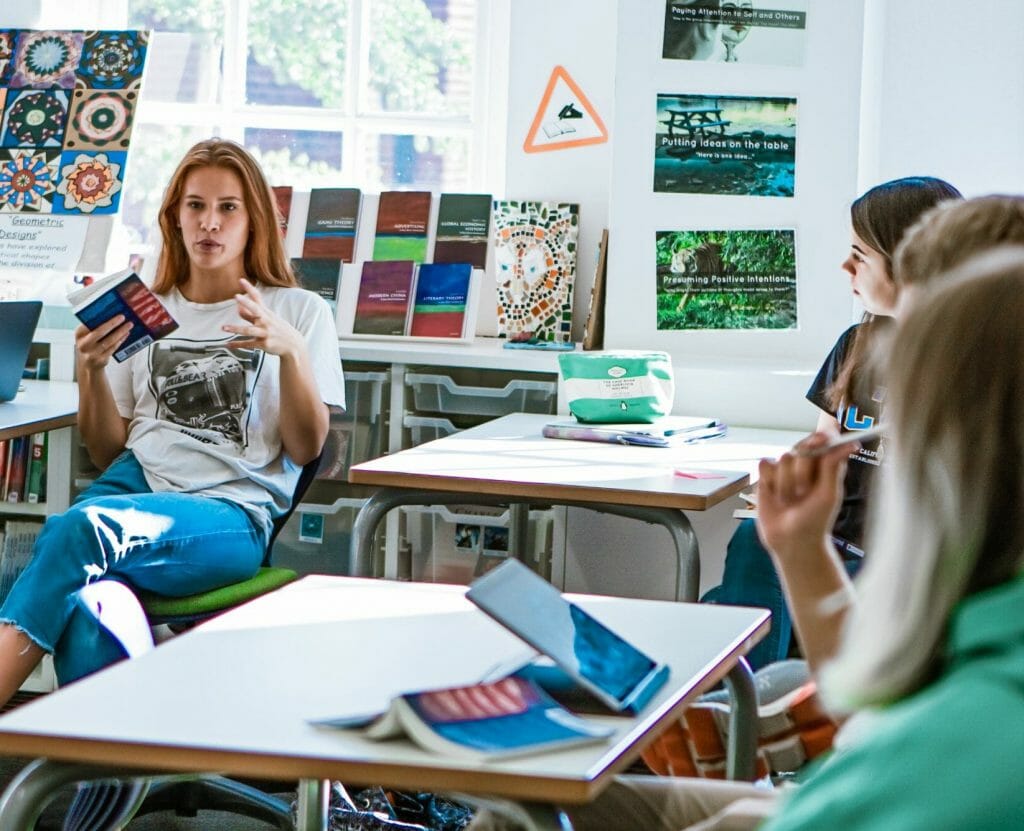
The IBDP has three core requirements that are included to broaden the educational experience and challenge students to apply their knowledge and understanding:
– Extended Essay – independent, analytical, research-based paper in one of the six subject areas or an interdisciplinary world studies essay
– Theory of Knowledge – examines critical thinking and inquiring into the process of knowing, from the viewpoint of different areas of knowledge. It is the interdisciplinary link of the IB Diploma.
– Creativity, activity, service (CAS) – opportunities for students to learn from experience, through authentic engagement with the local community, in creative expression, active lifestyle, and service collaborations.
The extended essay and ToK are options for students following the IB course programme. CAS is a requirement for all IB students.
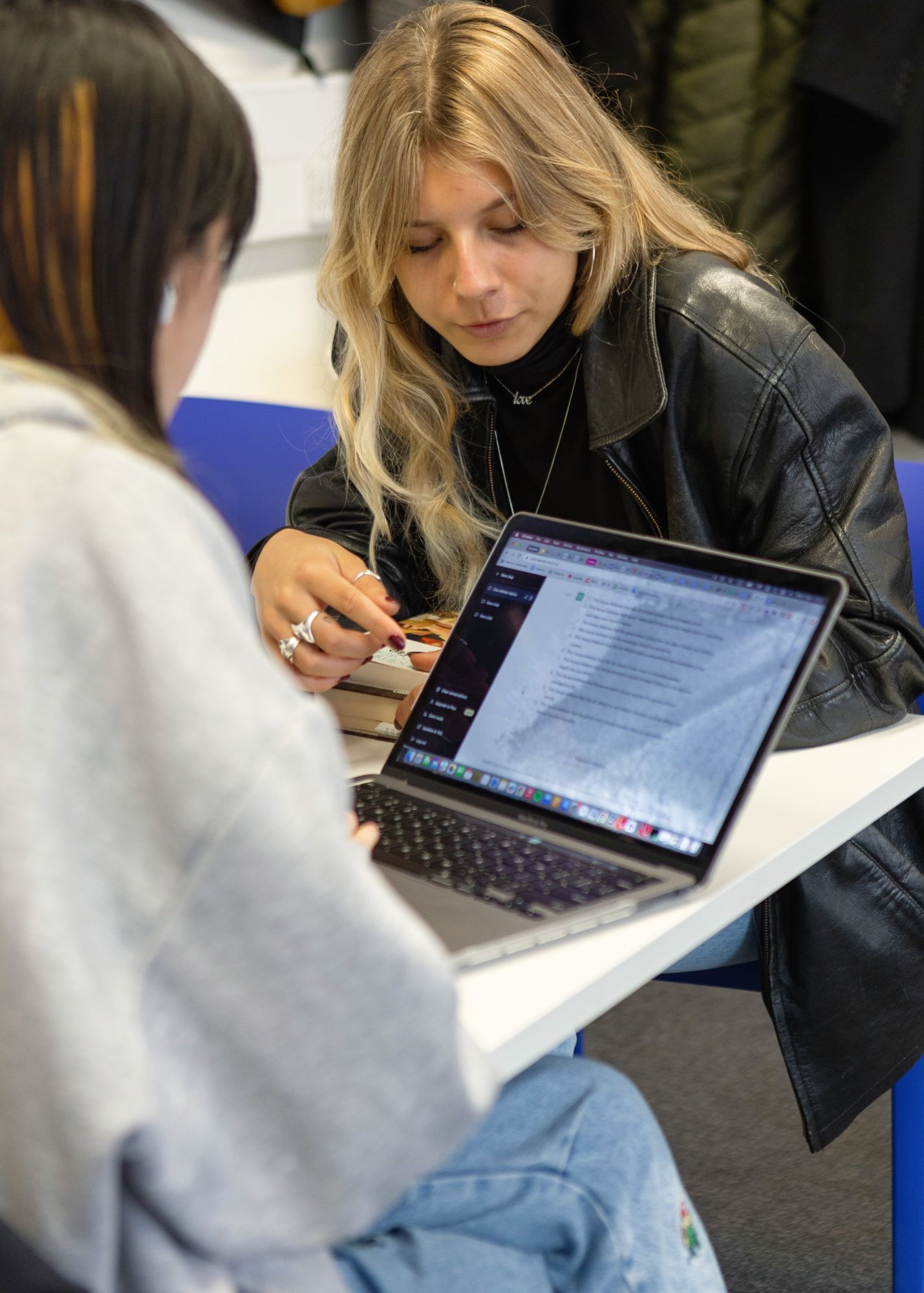
Halcyon offers the IB Diploma Programme and the IB Courses Programme to students in Grades 11 and 12. These are two-year courses.
Students who choose the IB Courses Programme have more flexibility in their subject selection and can select any IB courses that meet the requirements for the High School Diploma (See below). All IB classes are considered ‘honours’ classes, and there is no difference to course requirements in the two programmes: IB Courses Programme students will be in the same classes as IB Diploma Programme students. Students following the IB Courses programme can choose to sit external IB exams in their courses or not depending on requirements for their chosen path of further education. They will receive IB Course results certificates in externally assessed subjects.

Should they meet all the requirements outlined in the policy document, students in G12 will graduate from Halcyon with a High School Diploma. This is awarded at the senior graduation, which takes place in May, after IB external examinations but before the announcement of IB results.
View Halcyon High School Diploma Requirements Policy Document
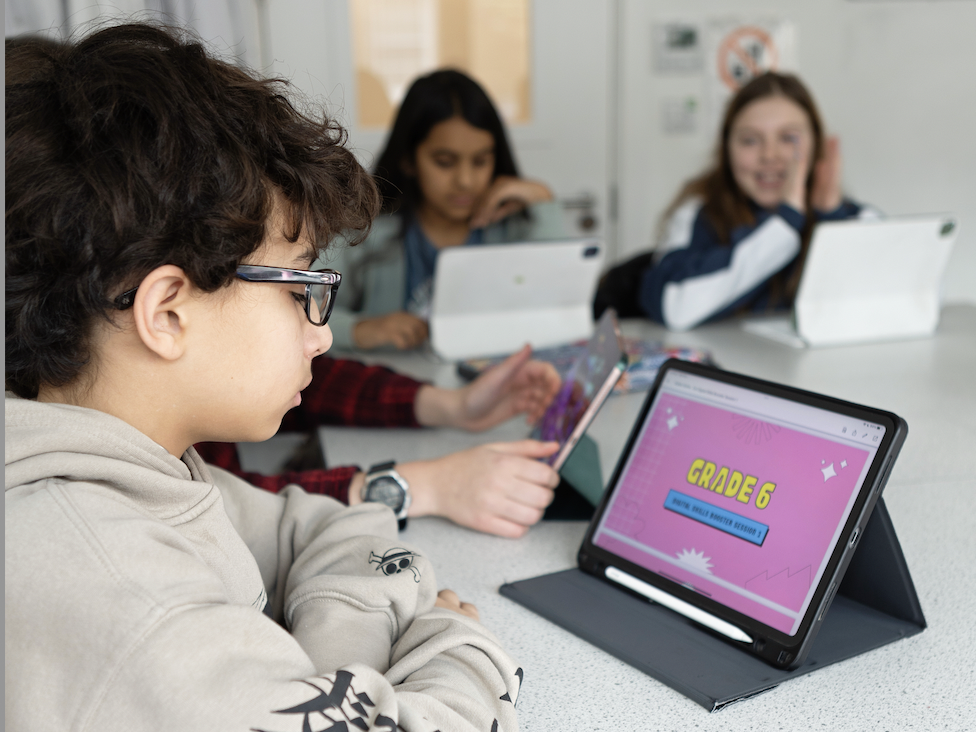
Students at Halcyon do many writing tasks by hand. For example, they write essays in humanities and English and complete unit tests in science and mathematics. They keep handwritten notebooks in mathematics and foreign language courses and have art journals for art and theatre. We believe it is essential that students develop a fluent and well-presented style of handwriting and continue to develop their fine motor skills through writing as well as drawing and construction activities.
We aim to reduce paper usage and printing not through reducing handwritten work but by eliminating photocopying and unnecessary printing of electronic documents. We provide class materials and homework tasks online rather than supplying printed photocopies, for example. When students do complete projects electronically, this work will also be uploaded, marked and shared electronically without the need for printing and storing multiple copies. Students will learn to use technology efficiently to keep their work organised and will be liberated from a heavy backpack filled with paper files, notebooks, etc.
We will also make optimum use of electronic books so that students can access their learning resources at any time and from any place without the need to carry textbooks between home and school.

Halcyon provides the opportunity for students to pursue personal enquiry and develop critical, independent research skills. Many students may choose an extension project of their own devising. A student might use this time to pursue an interest that is quite outside the taught curriculum; however, they may choose to enhance their understanding in a particular subject, such as developing their proficiency in a second language or exploring a branch of science or mathematics. Each student will record their personal learning goals and progress in ManageBac and this will be shared with their personal learning teacher, mentor and parents.